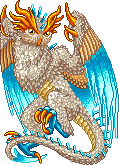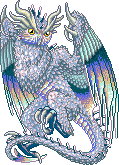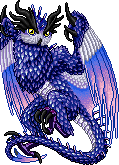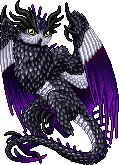Silent Night, Solstice Night
Posted: December 15th, 2020, 10:44:05 am
The Winter Solstice has forever been a season of remembrance, gifting and gathering. Many, many moons ago, this Pagan holiday started as a coven gathering to celebrate the longest day of the Wheel. This is when the nights slowly and gradually grow shorter and the days grow longer. It is also when... well... let's read about what it is, shall we?
In the past, the Winter Solstice has started on or around the 18th of December. Magi of all ages gather to talk in whispers about what they'll be gifting in secret or allowing the wee folk to know who sent them what. As always, the number of egg slots goes up at least by 3, each person gifting another is allowed only 3 gifts to give to one person. Many love to help out Saint Nick in his duties.
I ask you now... post here what you think you may be getting from our own Saint Nick. Speculations are allowed, disrespect is not or else coal be slipped into your stocking overnight. *grins* I also wonder what our new pet(s) may or will be. Have a safe and Blessed Yule, my friends!
*************
Bees, bees, bees! Oh how I love these baubles!
For the next several days, these pretty bees are the knees of baubles. The Solstice Caravan is also present and operating in the Shops!
Aurean Baublebee


 *
* 


General Description
Hatchling Description
Adult Description
Azraq Baublebee


 *
* 


General Description
Hatchling Description
Adult Description
Firoza Baublebee


 *
*


General Description
Hatchling Description
Adult Description
Bouba Baublebee



General Description
Hatchling Description
Adult Description
Nila Baublebee



General Description
Hatchling Description
Adult Description
Royal Baublebee



General Description
Hatchling Description
Adult Description
Sprite art: Mysfytt | Description: PKGriffin
Winterlight Wallatrice


 male
male 
 female
female
This bright egg has sweet chirps coming from within it, but touching it makes your fingers sting.
General Description
Hatchling Description
Adult Description
Darkfrost Wallatrice


 male
male 
 female
female
This bright egg has sweet chirps coming from within it, but touching it makes your fingers sting.
General Description
Hatchling Description
Adult Description
Sprite art: Xenomorph/Lazuli | Description: Sochitelya
The badge for gifting 10 different people.
Also from the Solstice Caravan...
The winter solstice, hiemal solstice or hibernal solstice, also known as midwinter, occurs when one of the Earth's poles has its maximum tilt away from the Sun. It happens twice yearly, once in each hemisphere (Northern and Southern). For that hemisphere, the winter solstice is the day with the shortest period of daylight and longest night of the year, when the Sun is at its lowest daily maximum elevation in the sky.[3] At the pole, there is continuous darkness or twilight around the winter solstice. Its opposite is the summer solstice. Also the Tropic of Cancer or Tropic of Capricorn depending on the hemispheres winter solstice the sun goes 90 degrees below the horizon at solar midnight to the nadir.
In the past, the Winter Solstice has started on or around the 18th of December. Magi of all ages gather to talk in whispers about what they'll be gifting in secret or allowing the wee folk to know who sent them what. As always, the number of egg slots goes up at least by 3, each person gifting another is allowed only 3 gifts to give to one person. Many love to help out Saint Nick in his duties.
I ask you now... post here what you think you may be getting from our own Saint Nick. Speculations are allowed, disrespect is not or else coal be slipped into your stocking overnight. *grins* I also wonder what our new pet(s) may or will be. Have a safe and Blessed Yule, my friends!
*************
Bees, bees, bees! Oh how I love these baubles!
For the next several days, these pretty bees are the knees of baubles. The Solstice Caravan is also present and operating in the Shops!
Aurean Baublebee


 *
* 


General Description
Spoiler
Baublebees are large, colorful insects that appear around houses and other dwellings when the first snows come. They are shy, gentle creatures that mostly spend time hiding in any dark, warm places they can find, but once they become comfortable with the inhabitants of their winter home and are confident their delicate glass bodies won't be damaged, they'll start to come out into the open. At the peak of the winter season, they can be seen flying around a house and gathering in out-of-the-way spots like on potted plants, occasionally humming melodic tunes with their filigree wings.
Spoiler
Aurean baublebees have to grow fast because unlike honeybees, they live in very small communities of only a handful of individuals. Within a week or two, they are fully grown and ready to start collecting food to share with their nestmates. Like other bees, they drink nectar, and although they don't make much of it, they turn the nectar into honey which they store in small pots. During the summer, they're active pollinators of a wide variety of plants, using their long proboscises to access flowers of all shapes and sizes.
Spoiler
Baublebees are occasionally spotted in the warmer months as they wander from flower to flower, but they're often associated with the winter holidays as they retreat inside to avoid the cold. They are polite guests whose presence goes unnoticed for the first few weeks, but around the solstice, they might start to come out and spend a bit of time pollinating a person's houseplants. Their shimmering colors make them look like decorative ornaments come to life, and sometimes people will purposefully decorate their house with winter-blooming flowers to entice the bees out of their hiding spots. The bees don't really need nectar during the winter because they rely on their own hidden stores that they've accumulated over the summer. They like to winter inside of houses because of their warmth, and the nectar they collect while in a person's house is mainly used to create a special tiny honey pot which they leave behind as a thanks once the weather outside becomes more amenable. The winter honey of baublebees is extremely potent, and is usually mixed with other honeys to add to their flavor. Aurean baublebees have honey that tastes somewhat like lemon and chocolate.
Azraq Baublebee


 *
* 


General Description
Spoiler
Baublebees are large, colorful insects that appear around houses and other dwellings when the first snows come. They are shy, gentle creatures that mostly spend time hiding in any dark, warm places they can find, but once they become comfortable with the inhabitants of their winter home and are confident their delicate glass bodies won't be damaged, they'll start to come out into the open. At the peak of the winter season, they can be seen flying around a house and gathering in out-of-the-way spots like on potted plants, occasionally humming melodic tunes with their filigree wings.
Spoiler
Azraq baublebees have to grow fast because unlike honeybees, they live in very small communities of only a handful of individuals. Within a week or two, they are fully grown and ready to start collecting food to share with their nestmates. Like other bees, they drink nectar, and although they don't make much of it, they turn the nectar into honey which they store in small pots. During the summer, they're active pollinators of a wide variety of plants, using their long proboscises to access flowers of all shapes and sizes.
Spoiler
Baublebees are occasionally spotted in the warmer months as they wander from flower to flower, but they're often associated with the winter holidays as they retreat inside to avoid the cold. They are polite guests whose presence goes unnoticed for the first few weeks, but around the solstice, they might start to come out and spend a bit of time pollinating a person's houseplants. Their shimmering colors make them look like decorative ornaments come to life, and sometimes people will purposefully decorate their house with winter-blooming flowers to entice the bees out of their hiding spots. The bees don't really need nectar during the winter because they rely on their own hidden stores that they've accumulated over the summer. They like to winter inside of houses because of their warmth, and the nectar they collect while in a person's house is mainly used to create a special tiny honey pot which they leave behind as a thanks once the weather outside becomes more amenable. The winter honey of baublebees is extremely potent, and is usually mixed with other honeys to add to their flavor. Azraq baublebees have honey that tastes somewhat like mint and cinnamon.


 *
*


General Description
Spoiler
Baublebees are large, colorful insects that appear around houses and other dwellings when the first snows come. They are shy, gentle creatures that mostly spend time hiding in any dark, warm places they can find, but once they become comfortable with the inhabitants of their winter home and are confident their delicate glass bodies won't be damaged, they'll start to come out into the open. At the peak of the winter season, they can be seen flying around a house and gathering in out-of-the-way spots like on potted plants, occasionally humming melodic tunes with their filigree wings.
Spoiler
Firoza baublebees have to grow fast because unlike honeybees, they live in very small communities of only a handful of individuals. Within a week or two, they are fully grown and ready to start collecting food to share with their nestmates. Like other bees, they drink nectar, and although they don't make much of it, they turn the nectar into honey which they store in small pots. During the summer, they're active pollinators of a wide variety of plants, using their long proboscises to access flowers of all shapes and sizes.
Adult Description
Spoiler
Baublebees are occasionally spotted in the warmer months as they wander from flower to flower, but they're often associated with the winter holidays as they retreat inside to avoid the cold. They are polite guests whose presence goes unnoticed for the first few weeks, but around the solstice, they might start to come out and spend a bit of time pollinating a person's houseplants. Their shimmering colors make them look like decorative ornaments come to life, and sometimes people will purposefully decorate their house with winter-blooming flowers to entice the bees out of their hiding spots. The bees don't really need nectar during the winter because they rely on their own hidden stores that they've accumulated over the summer. They like to winter inside of houses because of their warmth, and the nectar they collect while in a person's house is mainly used to create a special tiny honey pot which they leave behind as a thanks once the weather outside becomes more amenable. The winter honey of baublebees is extremely potent, and is usually mixed with other honeys to add to their flavor. Firoza baublebees have honey that tastes somewhat like apples and nutmeg.



General Description
Spoiler
Baublebees are large, colorful insects that appear around houses and other dwellings when the first snows come. They are shy, gentle creatures that mostly spend time hiding in any dark, warm places they can find, but once they become comfortable with the inhabitants of their winter home and are confident their delicate glass bodies won't be damaged, they'll start to come out into the open. At the peak of the winter season, they can be seen flying around a house and gathering in out-of-the-way spots like on potted plants, occasionally humming melodic tunes with their filigree wings.
Spoiler
Bouba baublebees have to grow fast because unlike honeybees, they live in very small communities of only a handful of individuals. Within a week or two, they are fully grown and ready to start collecting food to share with their nestmates. Like other bees, they drink nectar, and although they don't make much of it, they turn the nectar into honey which they store in small pots. During the summer, they're active pollinators of a wide variety of plants, using their long proboscises to access flowers of all shapes and sizes.
Spoiler
Baublebees are occasionally spotted in the warmer months as they wander from flower to flower, but they're often associated with the winter holidays as they retreat inside to avoid the cold. They are polite guests whose presence goes unnoticed for the first few weeks, but around the solstice, they might start to come out and spend a bit of time pollinating a person's houseplants. Their shimmering colors make them look like decorative ornaments come to life, and sometimes people will purposefully decorate their house with winter-blooming flowers to entice the bees out of their hiding spots. The bees don't really need nectar during the winter because they rely on their own hidden stores that they've accumulated over the summer. They like to winter inside of houses because of their warmth, and the nectar they collect while in a person's house is mainly used to create a special tiny honey pot which they leave behind as a thanks once the weather outside becomes more amenable. The winter honey of baublebees is extremely potent, and is usually mixed with other honeys to add to their flavor. Bouba baublebees have honey that tastes somewhat like ginger.



General Description
Spoiler
Baublebees are large, colorful insects that appear around houses and other dwellings when the first snows come. They are shy, gentle creatures that mostly spend time hiding in any dark, warm places they can find, but once they become comfortable with the inhabitants of their winter home and are confident their delicate glass bodies won't be damaged, they'll start to come out into the open. At the peak of the winter season, they can be seen flying around a house and gathering in out-of-the-way spots like on potted plants, occasionally humming melodic tunes with their filigree wings.
Hatchling Description
Spoiler
Nila baublebees have to grow fast because unlike honeybees, they live in very small communities of only a handful of individuals. Within a week or two, they are fully grown and ready to start collecting food to share with their nestmates. Like other bees, they drink nectar, and although they don't make much of it, they turn the nectar into honey which they store in small pots. During the summer, they're active pollinators of a wide variety of plants, using their long proboscises to access flowers of all shapes and sizes.
Spoiler
Baublebees are occasionally spotted in the warmer months as they wander from flower to flower, but they're often associated with the winter holidays as they retreat inside to avoid the cold. They are polite guests whose presence goes unnoticed for the first few weeks, but around the solstice, they might start to come out and spend a bit of time pollinating a person's houseplants. Their shimmering colors make them look like decorative ornaments come to life, and sometimes people will purposefully decorate their house with winter-blooming flowers to entice the bees out of their hiding spots. The bees don't really need nectar during the winter because they rely on their own hidden stores that they've accumulated over the summer. They like to winter inside of houses because of their warmth, and the nectar they collect while in a person's house is mainly used to create a special tiny honey pot which they leave behind as a thanks once the weather outside becomes more amenable. The winter honey of baublebees is extremely potent, and is usually mixed with other honeys to add to their flavor. Nila baublebees have honey that tastes somewhat like cloves.



General Description
Spoiler
Baublebees are large, colorful insects that appear around houses and other dwellings when the first snows come. They are shy, gentle creatures that mostly spend time hiding in any dark, warm places they can find, but once they become comfortable with the inhabitants of their winter home and are confident their delicate glass bodies won't be damaged, they'll start to come out into the open. At the peak of the winter season, they can be seen flying around a house and gathering in out-of-the-way spots like on potted plants, occasionally humming melodic tunes with their filigree wings.
Spoiler
Royal baublebees have to grow fast because unlike honeybees, they live in very small communities of only a handful of individuals. Within a week or two, they are fully grown and ready to start collecting food to share with their nestmates. Like other bees, they drink nectar, and although they don't make much of it, they turn the nectar into honey which they store in small pots. During the summer, they're active pollinators of a wide variety of plants, using their long proboscises to access flowers of all shapes and sizes.
Spoiler
Baublebees are occasionally spotted in the warmer months as they wander from flower to flower, but they're often associated with the winter holidays as they retreat inside to avoid the cold. They are polite guests whose presence goes unnoticed for the first few weeks, but around the solstice, they might start to come out and spend a bit of time pollinating a person's houseplants. Their shimmering colors make them look like decorative ornaments come to life, and sometimes people will purposefully decorate their house with winter-blooming flowers to entice the bees out of their hiding spots. The bees don't really need nectar during the winter because they rely on their own hidden stores that they've accumulated over the summer. They like to winter inside of houses because of their warmth, and the nectar they collect while in a person's house is mainly used to create a special tiny honey pot which they leave behind as a thanks once the weather outside becomes more amenable. The winter honey of baublebees is extremely potent, and is usually mixed with other honeys to add to their flavor. Royal baublebees have honey that tastes somewhat like grapes.
Spoiler
Baublebees are large, colorful insects that appear around houses and other dwellings when the first snows come. They are shy, gentle creatures that mostly spend time hiding in any dark, warm places they can find, but once they become comfortable with the inhabitants of their winter home and are confident their delicate glass bodies won't be damaged, they'll start to come out into the open. At the peak of the winter season, they can be seen flying around a house and gathering in out-of-the-way spots like on potted plants, occasionally humming melodic tunes with their filigree wings.
PrincessOfVampires wrote:Fun fact about the Baublebees:
If you look at the adult descriptions of the Bees that have 2 colors their honey has 2 flavours and Bees with single color have only one flavour of honey.
Bouba Baublebee - ginger
Azraq Baublebee - mint and cinnamon
Firoza Baublebee - apples and nutmeg
Royal Baublebee - grapes
Nila Baublebee - cloves
Aurean Baublebee - lemon and chocolate
Winterlight Wallatrice


 male
male 
 female
femaleThis bright egg has sweet chirps coming from within it, but touching it makes your fingers sting.
General Description
Spoiler
Wallatrice are named for their call, a drawn-out 'waa-laa, waa-laa' most often heard during the crisp autumn nights when they're most active. This noise is quite high and almost sweet, which means magi are often surprised to follow it and meet its large, brightly-coloured, aggressive owner. Wallatrice will fight just about anything, aided by their venomous spines and their ability to sweat poison down their legs to coat their sharp talons. Females are duller than their male counterparts to help aid in the protection of their nests, but as both parents are highly involved with their hatchlings, predators usually spot the male's bright colours and know to find easier, less poisonous prey.
Spoiler
Wallatrice hatchlings react to most noise and movement by crouching, hissing, and biting anything that comes within range. Even newly hatched they are venomous, but fortunately this poison isn't nearly as strong as that of the adults. Hatchlings enjoy playing with each other, which looks quite rough from the outside, but their hard feathers keep them from serious harm and their parents are always nearby to break up any real fights.
Spoiler
Adult wallatrice are wonderful parents and terrible to any other creature that dares to approach them. If raised from an egg by a patient magi, they will see that magi as part of their family, but that doesn't mean they won't hand out a good nip or swat with their powerful wings if offended. When not actively raising a family, wallatrice adults like to groom each other, lurk in high shadowy areas to startle people walking by, and eat sweet berries until something needs fighting.


 male
male 
 female
femaleThis bright egg has sweet chirps coming from within it, but touching it makes your fingers sting.
General Description
Spoiler
Wallatrice are named for their call, a drawn-out 'waa-laa, waa-laa' most often heard during the crisp autumn nights when they're most active. This noise is quite high and almost sweet, which means magi are often surprised to follow it and meet its large, brightly-coloured, aggressive owner. Wallatrice will fight just about anything, aided by their venomous spines and their ability to sweat poison down their legs to coat their sharp talons. Females are duller than their male counterparts to help aid in the protection of their nests, but as both parents are highly involved with their hatchlings, predators usually spot the male's bright colours and know to find easier, less poisonous prey.
Spoiler
Wallatrice hatchlings react to most noise and movement by crouching, hissing, and biting anything that comes within range. Even newly hatched they are venomous, but fortunately this poison isn't nearly as strong as that of the adults. Hatchlings enjoy playing with each other, which looks quite rough from the outside, but their hard feathers keep them from serious harm and their parents are always nearby to break up any real fights.
Spoiler
Adult wallatrice are wonderful parents and terrible to any other creature that dares to approach them. If raised from an egg by a patient magi, they will see that magi as part of their family, but that doesn't mean they won't hand out a good nip or swat with their powerful wings if offended. When not actively raising a family, wallatrice adults like to groom each other, lurk in high shadowy areas to startle people walking by, and eat sweet berries until something needs fighting.
The badge for gifting 10 different people.

Also from the Solstice Caravan...
VilaWolf wrote:Caravan Offerings and prices:
Winterlight Wallatrice 3,000
Darkfrost Wallatrice 3,000
Box of Chocolates 200
Cookie Jar 800
Fine Tuning Glass 500
Honeyed Tea 200 (I am adding that when you drink the tea, you have the opportunity to get either a Krysos, Moon shard or a Sun shard. The Moon shard stops the sprite's rotation of its colour.)
Booze Confetti






